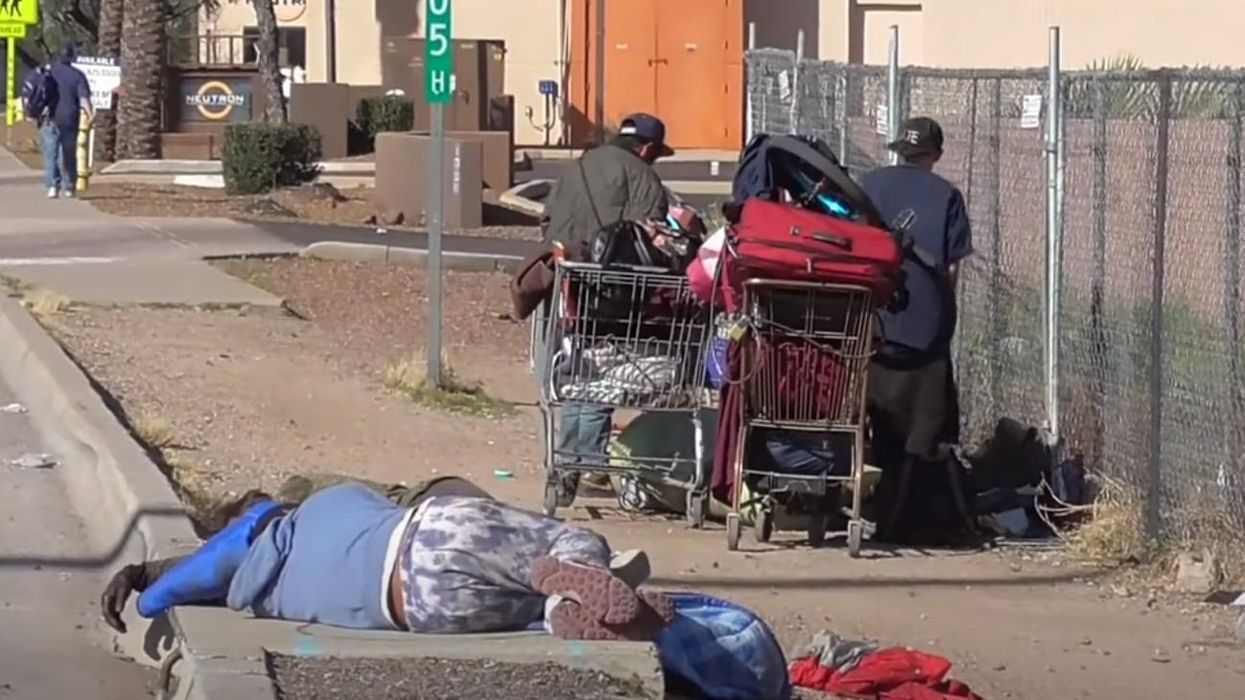No, People Shouldn't Be Living On City Streets
A lot of smart voices seem afraid to say outright that homeless mentally ill people should be taken off the streets, forcibly if necessary. They may easily agree that the sad humans sleeping on grates and under bridges would benefit from coming indoors for medical care and other social services. But they can't concede that the public's right to use sidewalks, parks and train stations should trump a homeless person's desire to take over those spaces.
Thus, this headline in the Harvard Gazette: "N.Y. plan to involuntarily treat mentally ill homeless? Not entirely outrageous."
The piece mostly defended New York Mayor Eric Adams' plan to hospitalize mentally ill people without their consent, but the "not entirely outrageous" was wrongly apologetic. There is nothing "outrageous" about stopping people living in filth, hollering into the night and sometimes attacking bystanders from, in effect, denying others access to public amenities.
This is a good opportunity to revisit the views of economist John Kenneth Galbraith, who wrote in the 1950s about "private affluence and public squalor" in our cities and towns. He was referring to the size and comforts of American homes versus the shabbiness of our shared streets with their poor lighting and trash all around. In cities like Paris, he said, the opposite was the case. There, apartments were tiny and lacking modern appliances, but the world outside was well kept.
Galbraith was a liberal and meant "private affluence and public squalor" to reflect the ability of our rich to better limit their exposure to the broken-down public sphere. And so there is great irony in self-described progressives' insistence that the squalor of homeless encampments is acceptable in the name of affording dignity to the poor.
Some have sued the city making mostly specious arguments. New York Lawyers for the Public Interest, for example, holds that the program puts people at risk for being detained "for merely living with their illness while in a public place."
The lawsuit further complains that they could be forcibly hospitalized "solely because an NYPD officer perceives them to have a mental disability and nothing more."
But that's not how it works. When the police take someone who concerns them to a hospital, that individual then undergoes evaluation by mental health professionals. Anyone who has witnessed the growing number of disheveled souls screaming at passersby and sometimes slamming into them understands that the bar for involuntary detention is high.
And those who recall the horrifying incident in which a homeless man pushed a young woman to her death as a subway train approached would be at pains to downplay his level of insanity as a "mental disability."
Katherine Koh, a street psychiatrist in Boston, told the Gazette that the criteria for hospitalizing someone without consent are whether there is serious risk of self-harm or harm to others. A third, "inability to care for oneself to a degree that it puts the person at risk of serious harm," is less clear but an important consideration.
For a treatable population, she adds, expanding community-based mental health services and supportive housing would be the preferred outcome to long-term hospitalization. If more staff and facilities are needed, the public has a duty to build them. But the public won't have the money to build them if the homeless crisis frightens away enough business to badly hurt the local economy.
In the end, citizens should have the right to enter a subway without having to step around cardboard boxes turned into shelters. And recognize that those who can afford the private affluence of taxis don't have to endure the public squalor of the others who have to walk through it. Where is the justice there?
Follow Froma Harrop on Twitter @FromaHarrop. She can be reached at fharrop@gmail.com. To find out more about Froma Harrop and read features by other Creators writers and cartoonists, visit the Creators webpage at www.creators.com.
Reprinted with permission from Creators.


